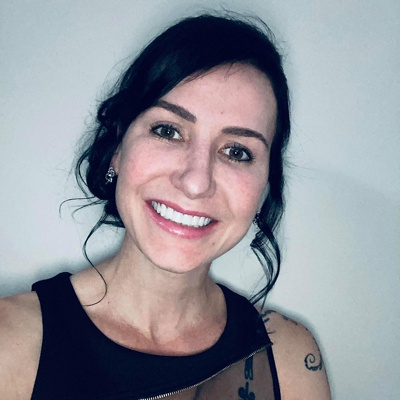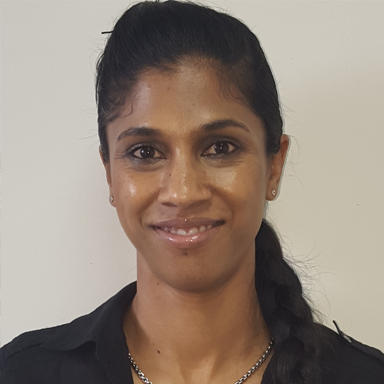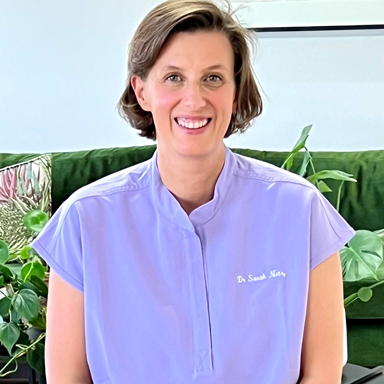Women in South Africa face multiple challenges when it comes to their health.
Among these include a lack of access to quality healthcare, mobility and transport issues as well as cultural barriers to receiving treatment. But, amidst these challenges, a number of women healthcare professionals are working hard behind the scenes to give women’s health the attention it deserves and extend the capabilities of the medical fraternity to empower women to live fulfilled, healthy and happy lives.

One of these women doctors is orthopaedic surgeon and multi-faceted medical health expert, Dr Santá-Marie Venter, who is currently based at Mediclinic Kloof in Erasmuskloof, Pretoria. Dr Venter holds multiple qualifications, among them being an MMed in Orthopaedics from the University of Cape Town and a Fellowship of the College of Orthopaedic Surgeons of South Africa. She also holds a Bachelor of Medicine and Surgery and an MSc in Sports Medicine from the University of Pretoria, as well as a Bachelor of Arts degree in Languages and Literature and a Bachelor of Laws (LLB) degree from UNISA.
Dr Venter is currently pursuing an MBA in Healthcare Management – a qualification she deems necessary in establishing her own practice, making good decisions as a business owner and contributing to the future of South Africa’s healthcare sector. She reflects fondly on being criticised for completing her LLB and MSc Sports Medicine degree simultaneously, while also competing internationally in mixed martial arts.
She references the words of Nelson Mandela who said that it’s always seems impossible until it is done. These words have played a pivotal role in her academic, professional and sporting careers.
Today, she is a glowing testament to the value of lifelong learning and the ability of education to equip medical practitioners with the tools, skills and knowledge they need to serve the needs of patients in an evolving world.
As she advises: “Women need to learn to connect with their bodies more. When our bodies speak to us, we need to learn how to listen to them. When warning signs arise, don’t postpone seeking medical help. Put yourself first and prioritise your physical wellbeing. This is the only way to become the healthy, strong and highly functional superwoman you were born to be.”
She recommends annual bone density testing, coupled with the appropriate bisphosphonate therapy, calcium and vitamin D supplementation – from the age of 30. These interventions, she says, should become part of your orthopaedic healthcare regime.

Also bringing her perspective forward in honour of Women’s Month is Dr Anusha Naidoo, Obstetrician, Gynaecologist and Gynaecological Oncologist who operates out of Mediclinic Sandton.
Dr Naidoo completed her medical degree at the University of Stellenbosch in 2004 and subsequently spent several years working in facilities in the Eastern Cape. She later went on to complete her diploma in obstetrics in 2008 and diversify her training and experience within emergency medicine and surgery. In 2015, Naidoo acquired a specialist degree in obstetrics and gynaecology at the University of Pretoria and four years later, qualified as a sub-specialist in gynaecological oncology. Most recently, she completed an M. Phil degree (Gynaecological Oncology) at the University of Pretoria.
It was during her time spent in the Eastern Cape that she discovered the need for cultural awareness and sensitivity in dealing with the issues that arise from the disparity in access to quality healthcare between rural and urban settings. During these formative years, she also identified a need for more experienced gynaecological oncology surgeons and decided to enhance her skillset and training in this arena.
Since then, she has been a passionate advocate for women’s health, making her contribution to various medical fields both theoretically and practically.
She urges women to: “Take their obstetric and gynaecological health seriously. A theme that is seldomly spoken about in obstetrics, is the need for women to have six-week, post-partum check-ups which should include a routine ultrasound, a pap smear and advice regarding contraception. This is particularly important given that cancer can co-exist with pregnancy.
Furthermore, annual visits to the gynaecologist are essential tools by which to screen and diagnose any conditions as earlier on as possible. These routine gynaecological screenings should start from the onset of sexual activity up to and after menopause, unless otherwise indicated. When you prioritise your health as a woman, you are, by definition, looking after the health of your dependents – children, partners, parents and the extended community.”

Echoing her sentiments is Dr Sarah Nietz, who is currently working with Mediclinic Morningside to open a Breast Care Centre. As a specialist breast surgeon, Dr Nietz has extensive experience in the field and is highly regarded as someone who has made an important contribution to breast cancer prevention and treatment.
Her work in helping to establish Mediclinic’s Breast Care Centre is as much a part of her technical and medical proficiencies, as it is a passion project which she believes will streamline the management of breast cancer patients, improve outcomes and bring a higher level of transparency to the diagnostics and treatment process.
With breast cancer being the most common form of cancer found in South African women, Dr Nietz and her colleagues have dedicated a substantial amount of time and resources to enhancing and improving the related surgical procedures.
But while medical technologies have indeed paved the way for better service provision in the industry, women still have a responsibility to themselves to play an active role in the early detection of breast cancer.
For this reason, Dr Nietz encourages all women to regularly conduct self-examinations to check for any lumps or other breast irregularities.
As she concludes: “As a specialist surgeon, my message for all women would be to let go of fear and hold onto hope. Things are changing every day in the realm of breast cancer treatment and are changing for the better. If detected early, this cancer is manageable. There are multiple service delivery challenges we face as women, but where there's a will, there's a way and I think of each challenge as an opportunity. As South Africans, women and healthcare professionals, we have a duty to keep innovating, keep asking questions and keep striving towards better health for all.”
